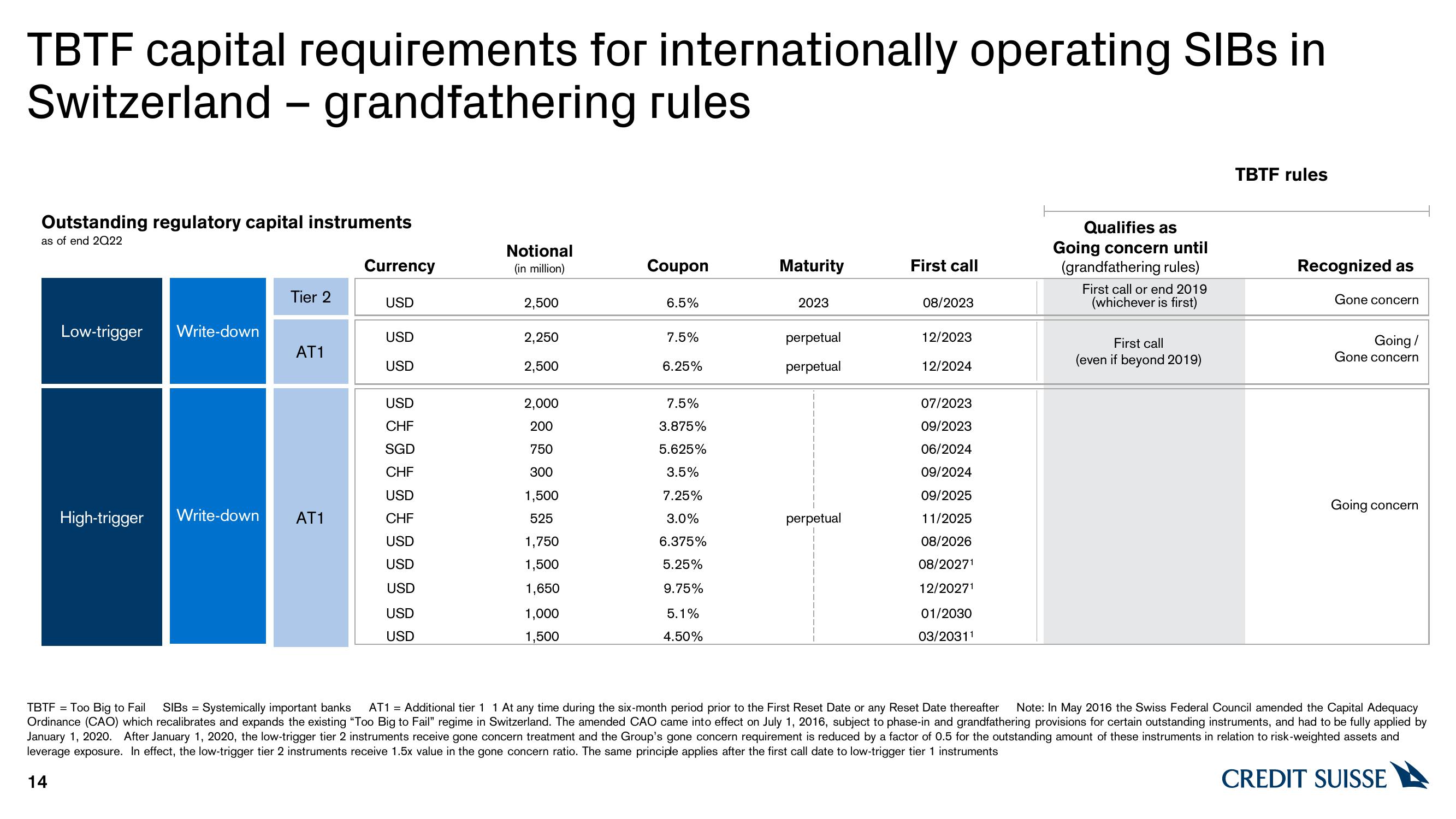Credit Suisse Credit Presentation Deck
TBTF capital requirements for internationally operating SIBs in
Switzerland - grandfathering rules
Outstanding regulatory capital instruments
as of end 2Q22
Low-trigger
High-trigger
Write-down
Tier 2
AT1
Write-down AT1
Currency
USD
USD
USD
USD
CHF
SGD
CHF
USD
CHF
USD
USD
USD
USD
USD
Notional
(in million)
2,500
2,250
2,500
2,000
200
750
300
1,500
525
1,750
1,500
1,650
1,000
1,500
Coupon
6.5%
7.5%
6.25%
7.5%
3.875%
5.625%
3.5%
7.25%
3.0%
6.375%
5.25%
9.75%
5.1%
4.50%
Maturity
2023
perpetual
perpetual
perpetual
First call
08/2023
12/2023
12/2024
07/2023
09/2023
06/2024
09/2024
09/2025
11/2025
08/2026
08/20271
12/20271
01/2030
03/20311
Qualifies as
Going concern until
(grandfathering rules)
First call or end 2019
(whichever is first)
First call
(even if beyond 2019)
TBTF rules
Recognized as
Gone concern
Going /
Gone concern
Going concern
TBTF = Too Big to Fail SIBS = Systemically important banks AT1 = Additional tier 1 1 At any time during the six-month period prior to the First Reset Date or any Reset Date thereafter Note: In May 2016 the Swiss Federal Council amended the Capital Adequacy
Ordinance (CAO) which recalibrates and expands the existing "Too Big to Fail" regime in Switzerland. The amended CAO came into effect on July 1, 2016, subject to phase-in and grandfathering provisions for certain outstanding instruments, and had to be fully applied by
January 1, 2020. After January 1, 2020, the low-trigger tier 2 instruments receive gone concern treatment and the Group's gone concern requirement is reduced by a factor of 0.5 for the outstanding amount of these instruments in relation to risk-weighted assets and
leverage exposure. In effect, the low-trigger tier 2 instruments receive 1.5x value in the gone concern ratio. The same principle applies after the first call date to low-trigger tier 1 instruments
14
CREDIT SUISSEView entire presentation